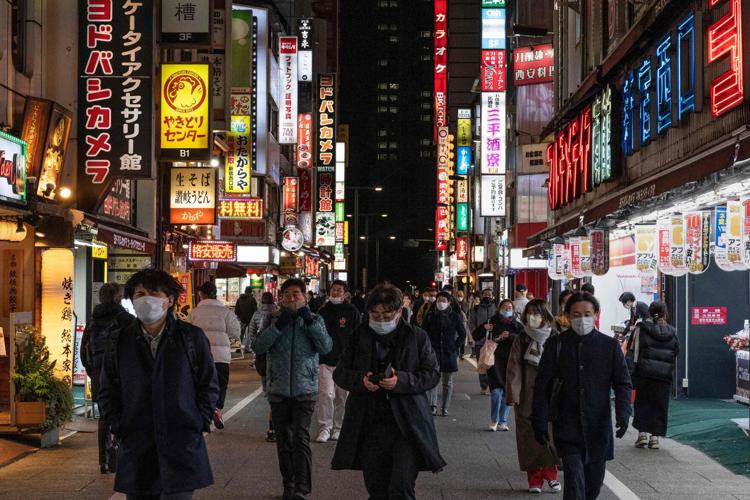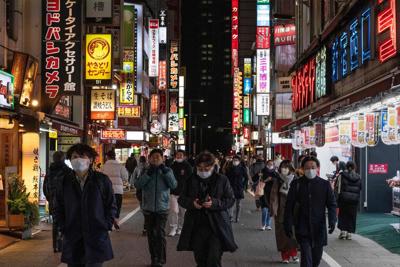In hockey, the best teams donÔÇÖt just fire more shots. They develop players who can stay on the ice longer, learn from missed opportunities, and play multiple seasons.
CanadaÔÇÖs entrepreneurship strategy needs the same playbook: more sticks on the ice, with the staying power to turn early failures into championship victories.
When JapanÔÇÖs Prime Minister Fumio Kishida announced his August 2024 departure, it sparked familiar debates about economic leadership and innovation ÔÇö conversations Canadians know well as we grapple with our own innovation strategy.
But beneath JapanÔÇÖs political transitions lies a business culture offering Canada a game-changing model: one that marries Silicon ValleyÔÇÖs rapid experimentation with the career sustainability our founders desperately need.
The stats are sobering in North America.
Research by Dr. Michael A. Freeman from the University of California San Francisco reveals entrepreneurs experience significantly higher rates of mental health challenges than other groups, with depression occurring at roughly twice the national average and substance abuse at about three times the rate.
Meanwhile, while half of all Canadian small businesses survive five years, tech startups face brutal 20-25 per cent survival rates ÔÇö and too many talented founders never return after their first knockout.

ÔÇťJapanÔÇÖs strength,ÔÇŁ says Noriko Kishida, CEO of Insight Core in Tokyo, ÔÇťlies in complementing startupsÔÇÖ hustle-driven energy with the stability of large firms, creating fertile ground for long-term, sustainable innovation.ÔÇŁ
JapanÔÇÖs entrepreneurial ecosystem offers a different game plan. The ÔÇťfail-fastÔÇŁ model isnÔÇÖt broken ÔÇö itÔÇÖs what happens after failure that separates heroes from casualties. Japanese business culture creates what innovation experts call ÔÇťpsychological safety,ÔÇŁ transforming calculated risks and early setbacks into learning experiences rather than career obituaries.
ÔÇťCompared to North AmericaÔÇÖs hustle culture, Japanese innovation may appear slower. Yet behind this lies a workplace built on long-term employment, teamwork, and careful consideration of risks ÔÇö an environment that fosters steady, sustainable growth,ÔÇŁ explains Noriko Kishida, CEO of Insight Core Inc. in Tokyo. ÔÇťRather than chasing disruptive breakthroughs at all costs, JapanÔÇÖs strength lies in complementing startupsÔÇÖ hustle-driven energy with the stability of large firms, creating fertile ground for long-term, sustainable innovation.ÔÇŁ
Indigo’s Heather Reisman is just one of many women playing the long game, writes┬áRay Sharma,
This philosophy shows in the numbers. While Japanese funding involves longer due diligence, it emphasizes ‘second acts’ ÔÇö supporting founders who stumble to re-enter stronger. In 2024, Japanese startups attracted record capital inflows exceeding hundreds of billions of yen, but with a twist: prioritizing sustainable scaling over the blitz growth that burns out founders.
The sector focus tells the story. JapanÔÇÖs most valuable startups emerge from deep-tech domains ÔÇö AI, synthetic materials, biotechnology, space technology ÔÇö capital-intensive fields rewarding persistence over quick marketing wins. These arenÔÇÖt businesses built on hype cycles; theyÔÇÖre marathons requiring founders with elite endurance.
ÔÇťJapanese businesses tend to be very loyal customers and take a deliberate approach to buying,ÔÇŁ notes Jim Weisser, a U.S.-born serial entrepreneur who sold his startup PBXL K.K. to BroadSoft (later acquired by Cisco). ÔÇťThatÔÇÖs a double-edged sword: the upside is low churn and stable revenue; the downside is slower customer acquisition compared to Western markets.ÔÇŁ
Canada can adapt these lessons without losing our competitive edge. Two power-play strategies stand out: venture studios and massively expanded corporate venture capital.
Ultimately ousted from his multibillion dollar company, Wilson’s laser focus on customers,
Venture studios provide shared infrastructure and experienced operators, letting founders fail fast on specific ventures while building durable entrepreneurial careers. Think of them as training facilities where players develop skills across multiple games rather than betting all on one shot.
Corporate venture capital delivers patient capital and industry expertise, helping founders learn from setbacks instead of being benched permanently. Together, these create more ‘ice time’ ÔÇö more opportunities to nurture skills across ventures and convert early losses into later victories.
The mental health crisis demands this shift. FreemanÔÇÖs research shows financial stress and economic instability drive founder struggles, but systems providing stability, mentorship, and re-entry pathways can dramatically reduce that burden.
The policy playbook writes itself. Canada should incentivize venture studios linked to university tech transfer and regional innovation hubs, and expand tax programs that attract corporate venture capital alongside independent funds.
Equally important: fund founder re-entry programs with targeted support for second and third attempts, and reward competitive, performance-based procurement that builds long-term supplier relationships rather than chasing lowest-cost contracts.
CanadaÔÇÖs fledgling ÔÇťmore shots on netÔÇŁ strategy needs an upgrade ÔÇö more players who can stay in the game. Venture studios and corporate venture capital represent our power play: keeping talented entrepreneurs on the ice longer, learning from each attempt, ultimately scoring the goals that drive sustained economic growth.
Championship hockey teams arenÔÇÖt built on individual theatrics ÔÇö theyÔÇÖre built on depth, resilience, and the wisdom that comes from playing multiple seasons.
Japan shows us the playbook for developing entrepreneurial dynasties, not just one-hit wonders.
Time for Canada to execute.



































To join the conversation set a first and last name in your user profile.
Sign in or register for free to join the Conversation